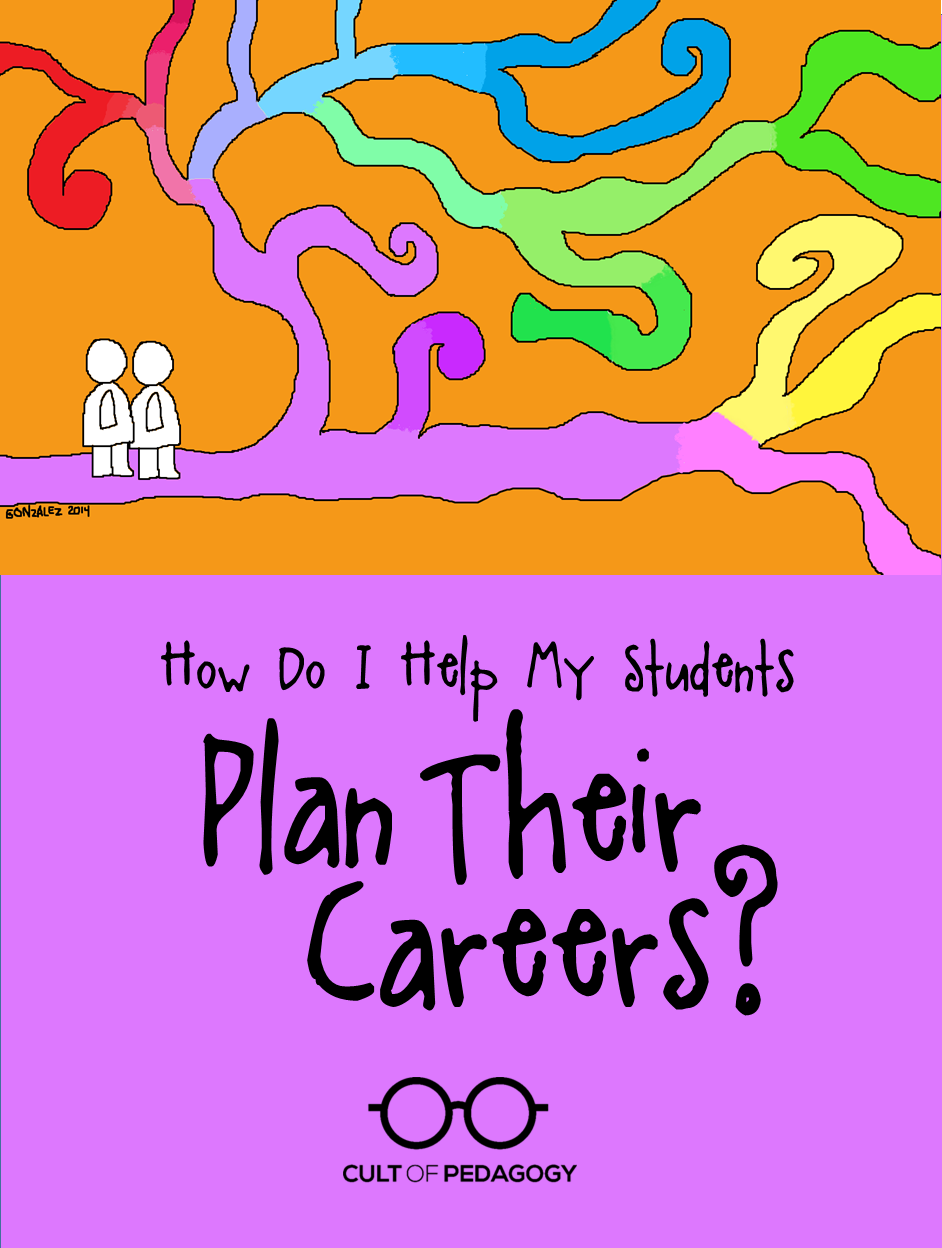
Dear Cult of Pedagogy,
I teach high school students. Some of them know what they want to do after graduation, but most are clueless. I can sympathize: When I was in high school, I had no idea what jobs were even out there, apart from the basic list of doctor, lawyer, teacher, police officer, etc. Sometimes I meet people who have jobs I’ve never even heard of, but they sound really interesting. I wonder if I would have chosen a different career path if I had only known more. How can I help my students explore their options more thoroughly than I did? Do you know of any good career resources I can point them to?
 The short answer: YES!
The short answer: YES!
Although many districts approach career education in a deliberate, systematic way, with some requiring students to begin software-aided exploration in middle school, others haven’t quite gotten there yet. Even with great systems in place, some students still find themselves with no concrete plans as they approach graduation. Maybe they didn’t take the career education seriously when it was offered, or their needs and preferences have changed. Maybe the guidance counselor who could have helped them was overburdened with administrative duties. Or maybe they would just rather explore on their own.
There are a few really solid online resources that can help. I recommend your students tackle this in two steps:
1. Figure out what you’re suited for with a FREE CAREER TEST.
Start by taking a career test to get a general sense of what kind of work fits your personality. I found two good free ones, and I suggest you take both: Your Free Career Test asks you to rate 42 different activities in terms of how interested you’d be in doing them. Completing the test takes just a few minutes, and the results are pretty accurate. On top of that, your results link you to lists of actual job titles that would match your profile.
Next, follow that up with the more in-depth Career Test at LiveCareer. This one is much longer and feels more comprehensive than the first. It takes more time, but you can pause your test and return later. Each of the 100 questions asks you to rank activities based on how much you would enjoy doing them. Here’s a little chunk of it:
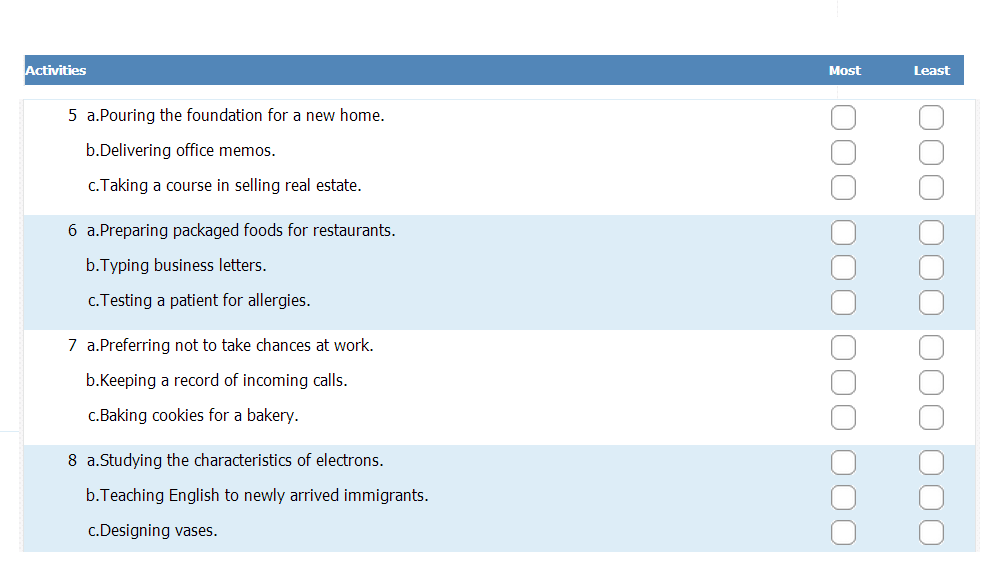
Once you’re finished, you get a pretty extensive report of your results. They offer even more in-depth summaries for $24.95 and $39.95, but the free results are a good start. Here’s a sample page from my free results, which show a strong preference for work in writing and teaching (and food…evidently) and a strong dislike for the outdoors (which did not come as a huge shock to me):
Unfortunately, they don’t get specific about job titles — this only comes with the higher-priced reports. So I recommend you do both tests — the first one for the links to jobs, the second one for the depth. With the results from both tests, you should have some idea of what jobs would be a good fit.
2. Find out what the jobs are really like.
Now that you have an idea of the kind of work you’re suited for, it’s time to refine your search by learning more about what the jobs are really like, what kind of education and training you need for them, the kind of money you could earn, and whether or not anyone is hiring.
Two sites have a truly mind-boggling collection of facts about hundreds of specific jobs: One is super user-friendly and fun to use, and the other is authoritative and backed by serious statistics. I would recommend you explore both of them.
The Fun One: Shmoop
If the name Shmoop sounds familiar, it’s because I reviewed their site just a few months ago. On top of all their great academic resources, they also happen to have an incredible career section. Shmoop will tell you things that no other site will about jobs that interest you.
For over 200 different job titles — including Umpire, Hospice Worker, and Toy Designer — you’ll get a general overview (“The Real Poop”), a narrative of a typical day, a description of qualifications, and an evaluation of how much stress, fame, danger, power and glory you can expect from the job.
What Shmoop doesn’t offer is a way to narrow your search based on practical considerations, like “What kinds of jobs can I get with just two years of college?” For questions like that, you need a more robust tool.
The Straightforward One: Occupational Outlook Handbook
Finally, the Occupational Outlook Handbook, maintained by the Bureau of Labor Statistics, is the gold standard for finding reliable, up-to-date facts about hundreds of career fields. Although it’s not as much fun as Shmoop, spending time with the OOH would be an important step in your search. You can filter your search by salary, projected growth, entry-level education, and the kind of on-the-job training you’ll receive. Rather than looking at jobs through the lens of interest, it looks at them by the numbers.
To show you how it works, I put together this quick demo:
Information is power, and using these four tools should at the very least give career seekers a better sense of control over the process.
If you know of other resources, please let me know in the comments!
Do you have a question about teaching? A problem in your classroom or your school? Something you’re trying to understand about education reform, technology, or classroom management? Send me an email and I may answer your question in a future blog post or video!
If you found this article useful, I’d love to have you come back for more. Join my mailing list and get weekly tips, tools, and inspiration — in quick, bite-sized packages — all geared toward making your teaching more effective and joyful. To thank you, I’ll send you a free copy of my new e-booklet, 20 Ways to Cut Your Grading Time in Half. I look forward to getting to know you better!

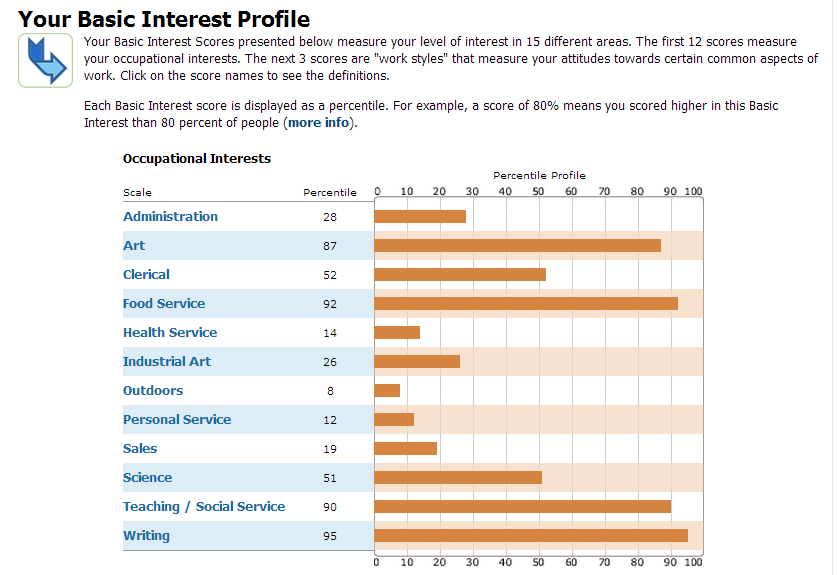
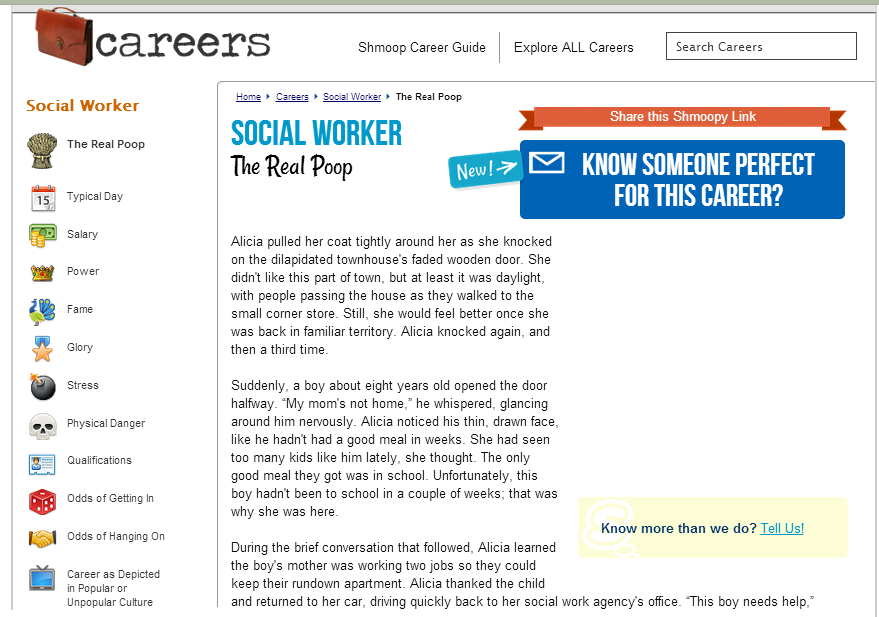
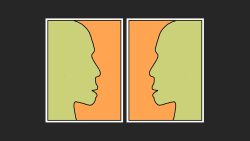



Hey! It’s me again. Here’s a related resource you might also be interested in: The Ultimate Guide to College Internships, which can help students locate and secure the right internship to launch their careers.
My juniors do a research project that involves a section of career planning. They pick what they want, but it has to be a “realistic living-wage” choice. (No pro athletes, etc.) They have to share what it takes–time, money, schooling–to be qualified for the job, as well as what the current demand is for those workers. They also figure out what would be left from their paychecks after taxes and bills. For some, it makes career choosing/planning less abstract than it used to be.
Glad you mentioned this topic, as I think a lot of students feel like their schools leave career planning a mystery reserved for them to work out on their own. Definitely a couple things you shared that I can use next year.
That sounds like an awesome project, and I think it’s a smart idea to place mild “reality” limits on their selections. You’re right — many schools do just leave this topic unattended, and what a shame, when there’s so much talk about authentic learning. If you haven’t used the Occupational Outlook Handbook, definitely consider it. I was pretty fascinated by the numbers you could pull from that. Thanks for sharing, Jeremy!
MyNextMove.org is a favorite career exploration tool for middle and high school students – very student friendly. But I wish more schools (some do!) and students would take it to the next level: shadow, volunteer, intern in an interested occupation field. I’ve met students who completed two years of college in a field they thought was perfect for them, but once they got experience in an internship, completely changed their major – wasting a lot of tuition dollars. Consider if high schools hosted a list of people/businesses in the local community who want to invite students to check out their profession. What a great partnership, especially for a company who needs workers. Business can encourage students to get on-the-job training or higher education, then come back to their hometown to contribute to the community.
Awesome post Jennifer! Kindly check out our article here: http://www.usatestprep.com/blog/2017/09/28/preparing-your-high-school-student-for-a-career/
In our changing economy, college entrance isn’t the only path to a successful career. However, high school students must be prepared to enter the workforce lest they flounder in minimum wage jobs. This guide will help you prepare your high school students for a successful career.
Thank you
These are some great career resources and ideas. It is so important that kids get exposed to all of the options. Thanks for a timeless article.
when will school open back up again because I think it’s great for people to work from home so they can keep their distrance from other people if their at work.
Hi Jennifer.
Our program is career infused, in which our students can earn credits by going out and interning with businesses in our community. We bus them there, and the students participate in the business in whatever way works best for them and the student. This is all negotiated before the students even know it’s a possibility.
We also use Naviance through Clever. This is a district choice that was made a few years ago. They can look at all types of careers – and we ask them to do the profile when they first come in. This also gives them scores of careers with information – many times the students discover jobs/careers they’d never dreamed of. This also happens in the internships (which also gives them practical experience and builds their resumes).
What I also did was to put together a Nearpod lesson which they have access to all year. Included is a poll on what they plan to do in the next year. But, I also included links to FAFSA and our ORSAA site (we’re in Oregon, other states may have similar sites) to help with financial aid. I also include links to various schools (universities, community colleges, trade schools, etc) with links to different programs, applications, etc. It’s like a slide show they can move around in.
We also include a trip to the local community college, and later I take kids to the trades training site for that community college if they have the interest.
We have also partnered with GoodWill and they come in and teach Resume workshops, Interview workshops, and other skills that help the students. Our students have gone ga-ga over these. They love them and profit greatly from that partnership.
These are just a few things. If you’d like me to share the nearpod with you, I can, but it’s dedicated to our location.
Hope this gives some ideas to someone!
Hi Tony Scott and Jennifer!
I am a business education teacher so I teach my students how to do career research, write cover letters, and develop their resumes. We also use Naviance through Clever . We also use You Science, which is a platform that assesses the students’ career interests through a career interest inventory. The platform then offers detailed career information based on the students’ responses.
i’m currently doing sociology , geography and business studies. what programme should i under go to make it
Dennis, the Occupational Outlook Handbook might be a good place to get some more information about which program will best support your goals. It’s linked in section 2 of this post: Find Out What the Jobs are Really Like. Hope this helps!